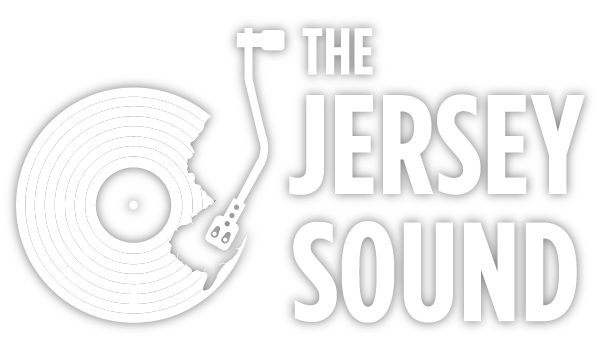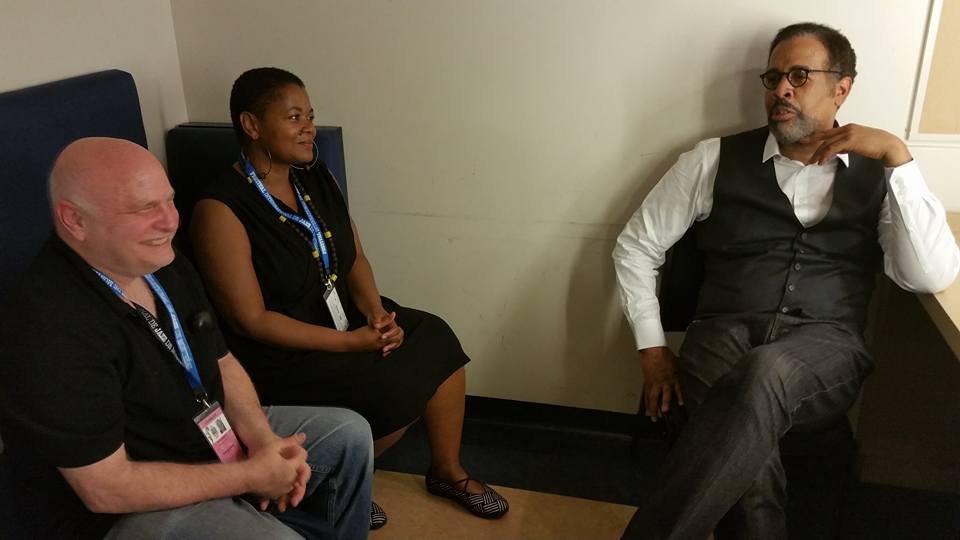A Conversation with Bassist Stanley Clarke at the Montreal Jazz Festival
UP CLOSE
⭐️
Stanley Clarke
⭐️
UP CLOSE ⭐️ Stanley Clarke ⭐️
Groundbreaking 1970s jazz-rock fusion band Return To Forever was half from New Jersey. Drummer Lenny White and guitarist Al Di Meola are in the upcoming documentary The Jersey Sound. In 2015, while covering the Montreal International Jazz Festival, I made a friend, Levita D. Mondie. She has given us permission to reprint her Stanley Clarke talk, originally published by In Concert, and next month, in one of the last interviews of his life, Goldmine magazine has graciously allowed us to post the interview I conducted with the legendary Chick Corea. —Mike Greenblatt
On the second evening of the largest jazz festival in the world, the downtown streets of Montreal around Place des Arts, Canada’s most sizable cultural and arts complex, are crowded with people pressed front to back taking in performances on outdoor stages. It takes me more than 20 minutes to inch diagonally down and across the street from the Starbucks located at 262 West Saint Catherine at the corner of Jeanne-Mance Street to the entrance of 175 West Saint Catherine where the Stanley Clarke Band is performing at the Théâtre Maisonneuve.
The performance hall is vast, dim, and full. The band consists of Clarke, who has been playing for four decades, and three other musicians barely in their twenties who have clearly earned the right to be on stage with the bass virtuoso—pianist Beka Gochiashvili from the Republic of Georgia, electric keyboardist Cameron Graves from Los Angeles, and Mike Mitchell of Dallas, Texas on drums.
(Advertisement) Interview continues below…
This is Clarke’s first time back at the Montreal International Jazz Festival since 2011 when he was awarded the Miles Davis award for being a jazz innovator, particularly on the acoustic and electronic bass, who has kept the music moving forward. Back then, he performed with his musical brothers and big brothers Chick Corea, Lenny White, and Al Di Meola, in the band Return to Forever IV. In his acceptance speech, Clarke reflected on one of the roles of the artist: “Sometimes when I look at the planet, it seems like a powder keg. . . like it could blow up at any moment from all of this contention and conflicts (wars between countries, between tribes) and violence. . . Our job as artists is to keep the planet COOL.”
PHOTO: Scene from the 36th Edition of the Montreal International Jazz Festival 2015
PHOTO CREDIT: Levita D. Mondie
And COOL the members of the Stanley Clarke Band are. Clarke himself is a bassist from another planet who can make the upright speak multiple languages, morph into a drum, and echo ancient instruments from opposite parts of the world. He draws out the extraordinary in the musicians who share the stage with him. Spirit lifts Beka off of his seat as he plays black and white keys, sweat bursts from Mike’s body as he puts his soul into every boom bap, and, with laid-back-grace, Cam plays flute and other organic sounds from the electric keyboards that create a whole other dimension.
Shortly after Clarke’s band takes the audience on a musical journey and back, another journalist and I are escorted backstage, down a short, white, sterile hall way, and around a corner to Clarke’s dressing room where he is sitting in a chair talking to his drummer and another man who appears to be a longtime friend. The drummer leaves, the friend fades into a corner, and a festival staff member formally presents us. I shake Clarke’s hand, introduce myself as a journalist for In Concert Magazine, and say something that I hope is coherent about knowing him through my parent’s album collection. He invites us to take a seat on the couch directly across from his chair. I begin our conversation with a question about his longevity and what he attributes it to. “I exercise and eat right, and if I wasn’t doing this [being a professional musician] I would be an educator,” he shares.
A child prodigy himself, Clarke was embraced and nurtured by jazz elders such as Art Blakey, Dexter Gordon, and Stan Getz. Conscious of his own beginnings, he welcomes the insights of today’s young artists. “I was 18 when I started playing with Horace Silver. . . These young men who play with me listen to everything from hip hop to rock to old school jazzheads. . .It keeps everything fresh, relevant and moving forward.”
(Advertisement) Interview continues below…
Just as there is a tradition of truly great jazz musicians doing away with generational boundaries, there is also the tradition of pushing boundaries of instrumentation. “In this band, I like the texture of having an acoustic piano and the electric keyboards. I like to marry those two together. Cam is able to play electric sounds and make them sound organic. It fits in with the acoustic piano and gives the trio setting a bigger view.”
Video Credit: Levita D. Mondie
Clarke’s brand of funk, pioneered before Beka, Cam, and Michael were even on this planet, is woven into the evening’s performance. “If you hear any noise, it’s just me and the boys,” Clarke lines out for the audience as these young cats join him on Parliament’s 1975 hit “Mothership Connection (Star Child),” a song covered six years later and further solidified as classic funk by Clarke and the late great fusionist and producer George Duke on one of their many collaborations.
Video Credit: Levita D. Mondie
The bassist values revisiting the old to generate something new. “We were playing that Joe Henderson tune, “Black Narcissist.” That’s something out of my past. I played that tune in the late 60’s early 70’s, and I carried that tune with me. What I like about that is bringing that tune to new audiences, and we have like a new vibe on it. It’s kinda COOL.”
(Advertisement) Interview continues below…
“Unfortunately, the public seems to think that if an entertainer makes millions of dollars he has that amount of intelligence. There can be a gifted musician playing on the street for coins who has a world of intelligence but the industry hasn’t discovered him or doesn’t make room for him”
Though Clarke is not formally trained as a teacher, he impacts young musicians through the Stanley Clarke Foundation that he and his wife founded over a decade ago, which provides scholarships to talented artists who want to pursue music on the college level. Furthermore, Clarke is increasingly involved in the business side of the music industry. He publishes and records musicians via his very own record label called Roxboro, which he founded five years ago. In fact, Gochiashvili’s first album, a self-titled project, was recorded by Clarke’s Roxboro Entertainment Group.
PHOTO Mike Greenblatt of The Jersey Sound (then Goldmine), Levita D. Mondie of In Concert, and bassist virtuoso Stanley Clarke
Like an educator, Clarke believes in the intellectual development of artists. “The jazz musicians I’ve had the honor of knowing are very intelligent, thoughtful human beings. . . The ones who welcomed me came of age during the ‘60’s, so they had a social awareness that many of today’s artists don’t seem to have. Unfortunately, the public seems to think that if an entertainer makes millions of dollars he has that amount of intelligence. There can be a gifted musician playing on the street for coins who has a world of intelligence but the industry hasn’t discovered him or doesn’t make room for him.”
Fortunately, Clarke has committed himself to discovering, developing, and elevating those coming after him. Something to be respected about an artist who has recorded 40 albums of his own, done 60 film scores, won multiple Grammys and been hailed a living legend.
(Advertisement) Story continues below…
PHOTO: Stanley Clarke and Levita D. Mondie
Levita Mondie is a native of Memphis, Tennessee who has lived in the DC metropolitan area since 1993. Over more than two decades, she has taught every grade from 6th to seniors in college. Currently, she teaches history and literature to 7th and 8th graders at Burgundy Farm Country Day School in Alexandria, Virginia. She is also a writer who has published pieces as a literary scholar, poet, and vegan chef. Most of all, she is the mother of two beautiful, creative, spirited daughters who are now college students.
Her plant-based food journey began in 1995 when her mother was diagnosed with cancer. She transformed the loss of her mom in 1996 into healing and has been sharing the joy and knowledge of vegan cooking ever since. Food is sustenance, art, culture, and history. She weaves all of these elements together in demonstrations, interactive lessons, talks, and writing. She explores a wide range of ethnic cuisines, including Soul Food, Thai, Italian, West African, Caribbean and more.
These elements of her background find their way into her writing on various topics.




